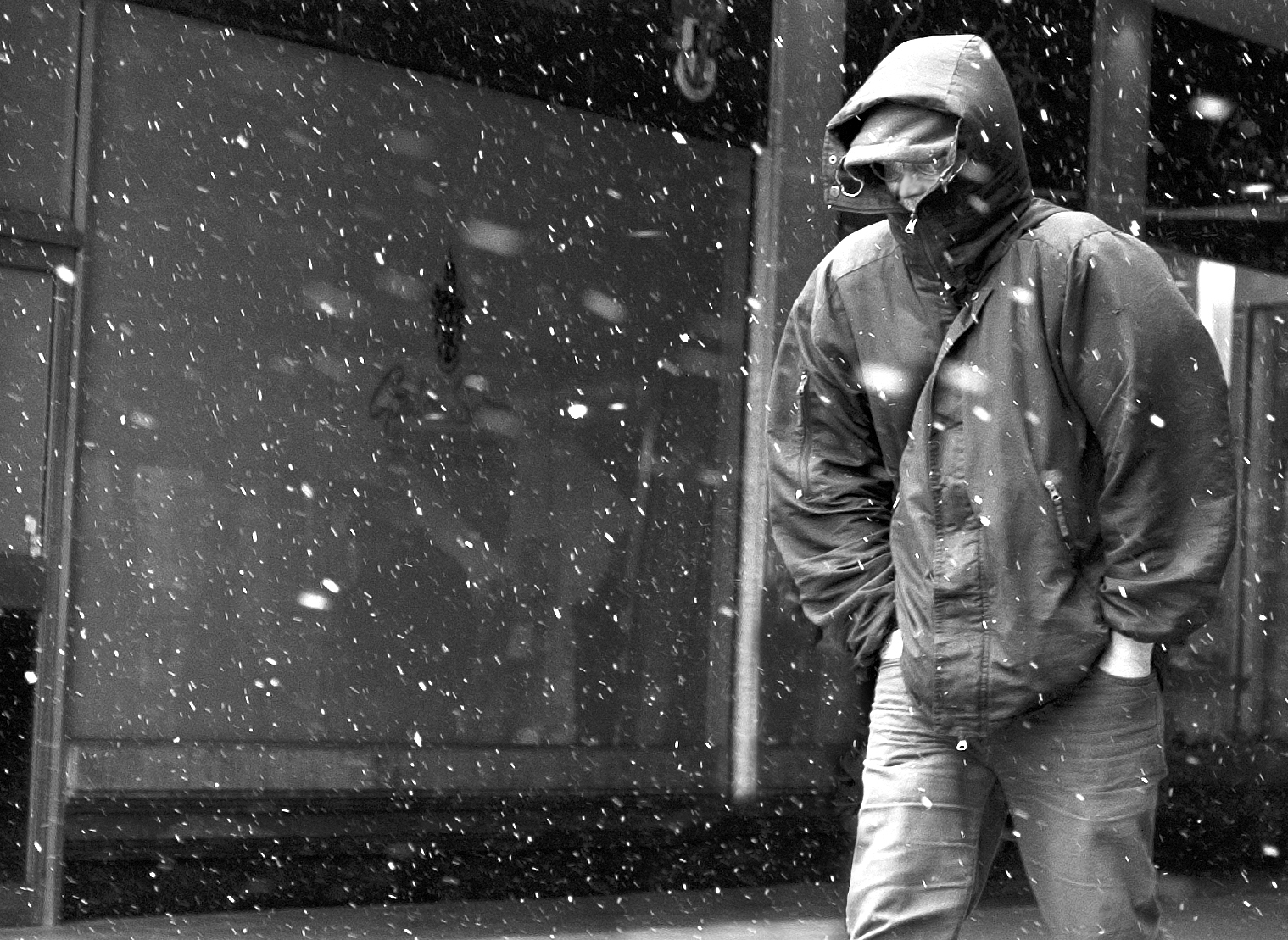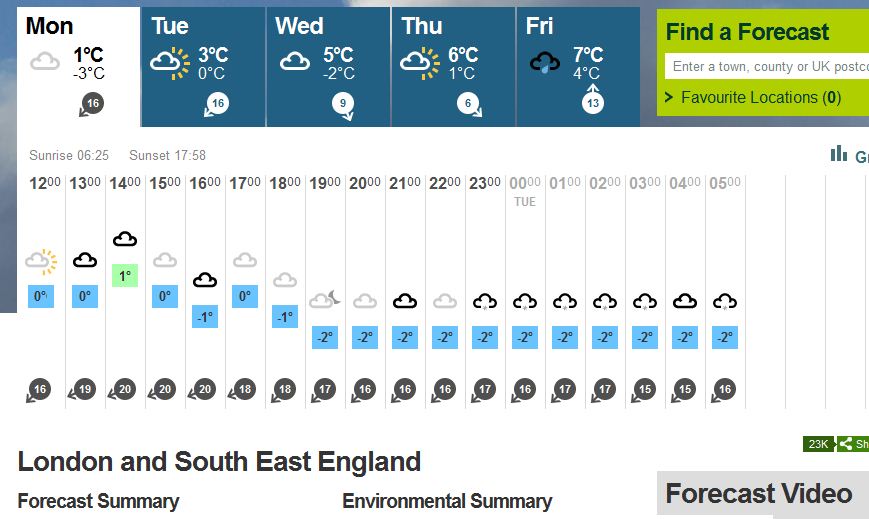(To read about the project have a look at this page / Click on the image to see a detailed view)
Subject: Icy winds sweeping round street corners and blowing grit in your eyes
Location: Outside the Harlequin Shopping Centre
I took this photo on 11 March, although it might well have been 11 January. The MET Office records show that the mean temperature for last month in England was 2.2°C, which is more than half a degree colder than February (2.8°C) and way below the March average for 2012, 7.7°C.
In fact this March was as cold and raw as any I could remember. After weeks of apologetic forecasting on the television, we all know why. The jet stream went south over the Bay of Biscay, polar air flooded over the UK and an anti-cyclone blasted us with icy air from Siberia.
Here, for instance, is a screen shot of the weather just before I popped out with my camera.
The man pictured, with his hands buried in his trousers and hood pulled over his head, could easily stand for just about anyone else in town that day. It wasn’t a tricky shot to get. Standing outside the shopping centre a sudden blizzard had blown up, so the snow here is a substitute for the grit in Orwell’s description. If you don’t like that shot, then here’s an alternative.
Blue sky thinking
It’s on days like this you feel that you’ve finally had it with England. I lived in Madrid for three years, where great lapis skies dominate all year round. Clouds do roll in from the northern mountains from time to time, but up in the thin air high on the Castilian plains Madrileños generally exist in a world of constant, cheering sunshine.
Some years on, stuck in the English chill, waiting for a spring that has not happened, I was left remembering Hemingway’s famous declaration about Madrid, ‘one feels overwhelmed by desperation when realising that someday we will have to die and leave all this behind.’
Orwell, of course, has his Spanish connections too – although more with Madrid’s great rival Barcelona. As such he had experience of the Iberian climate and from his years working for the imperial police in Burma he was familiar with the monsoon climate.
This knowledge informed his Bad Climates are Best article that’s at the backbone of this project. That piece was written in early February 1946, a time when the English weather is generally at its worst.
Bad weather might have been on his mind but another spur was the growing idea that science would one day be able to control climate. In this age before the microchip, the prospect of this must have conjured up the image of an enormous machine – a grand thing in Greenwich perhaps, with a lever for temperature, a dial for sunshine and a slider for clouds.
Here’s what Orwell had to say about the matter:
‘…if the day ever comes when Britain has to decide what kind of climate it is to have (it will be done by plebiscite, I suppose, or on the basis of a Gallup Poll), I hope we opt for what is called a “bad” climate and not what is miscalled a “perfect” one.
The great thing about the English climate is its variation. It is not merely that you never know what the weather is going to do to-morrow, but that each season of the year, and indeed each month, has its own clear-cut personality, like an old friend – or, in the case of two or three months, an old enemy.’
This, Orwell points out, does not happen in most parts of the world. Much of the East, for example, is dominated by a three season climate: the hot, the cold and the rains. In each of these seasons one day is just like the next. He continues:
‘In very hot climates there is not even anything corresponding to spring or autumn; there are always flowers in bloom, the trees are evergreen, the birds are nesting all the year round. Down near the Equator even the length of the day barely alters, so that you never have the pleasure of a long summer evening or of breakfasting by artificial light.’
It’s taken me a month and a bit to write up this photograph. And in that time we’ve had snow, gales, showers and now we’ve got spring sunshine. From Staffordshire my dad tells me that after their protracted dormant session, spring has hit their garden in Blitzkrieg fashion – daffodils, primroses, wallflowers all blooming overnight.
This taps into the argument that Orwell is making here. But for the terrible March we would not be having our vibrant April. It’s always unpredictable, but our capricious English climate is just as capable of cheering us up as driving us to despair.

